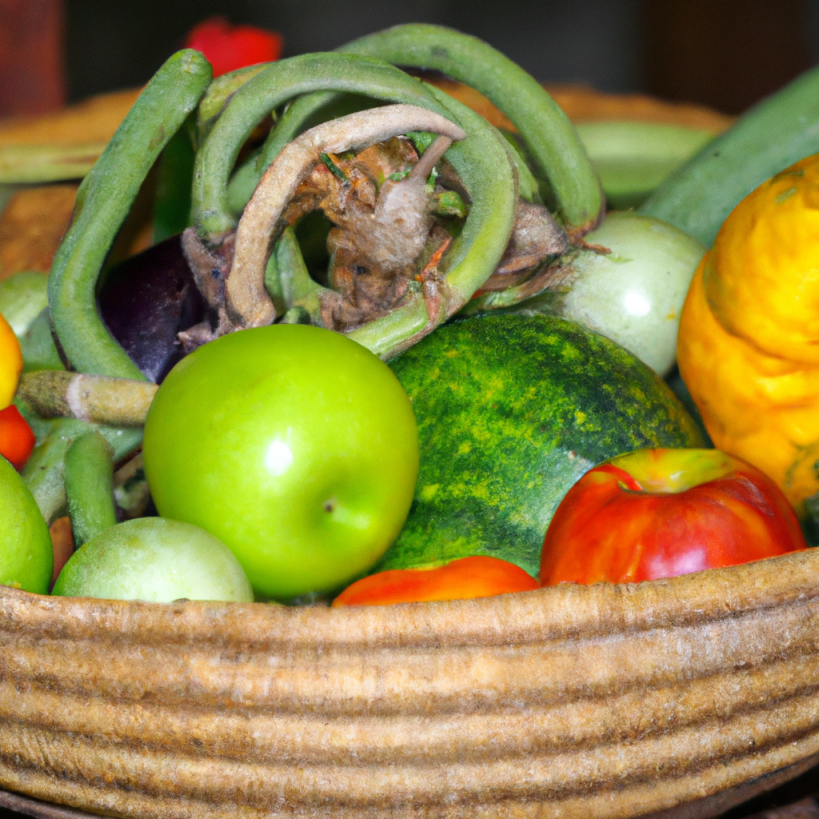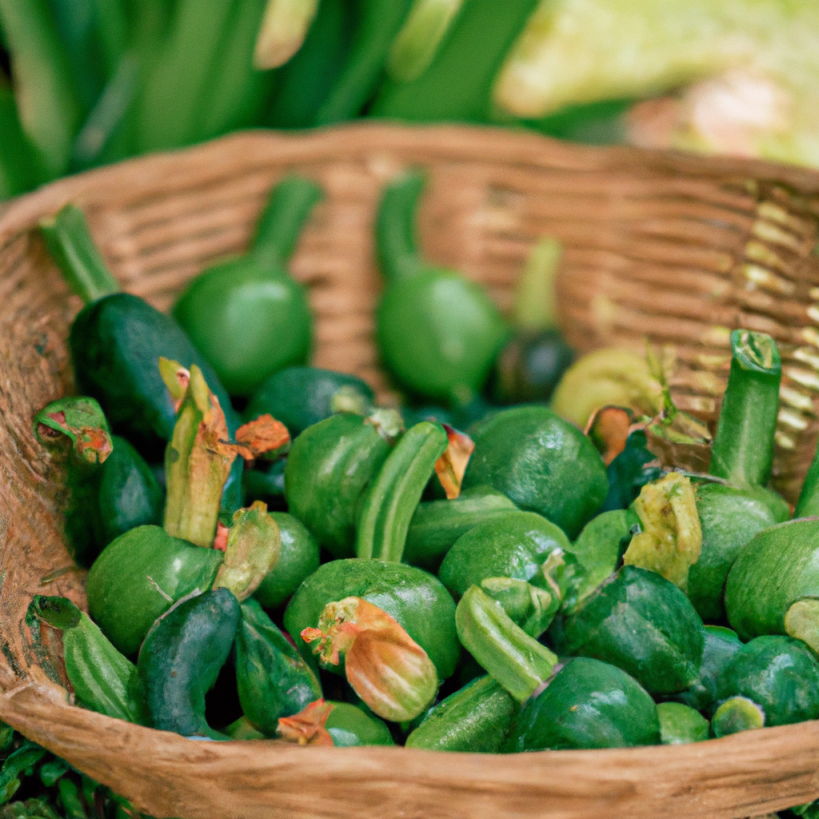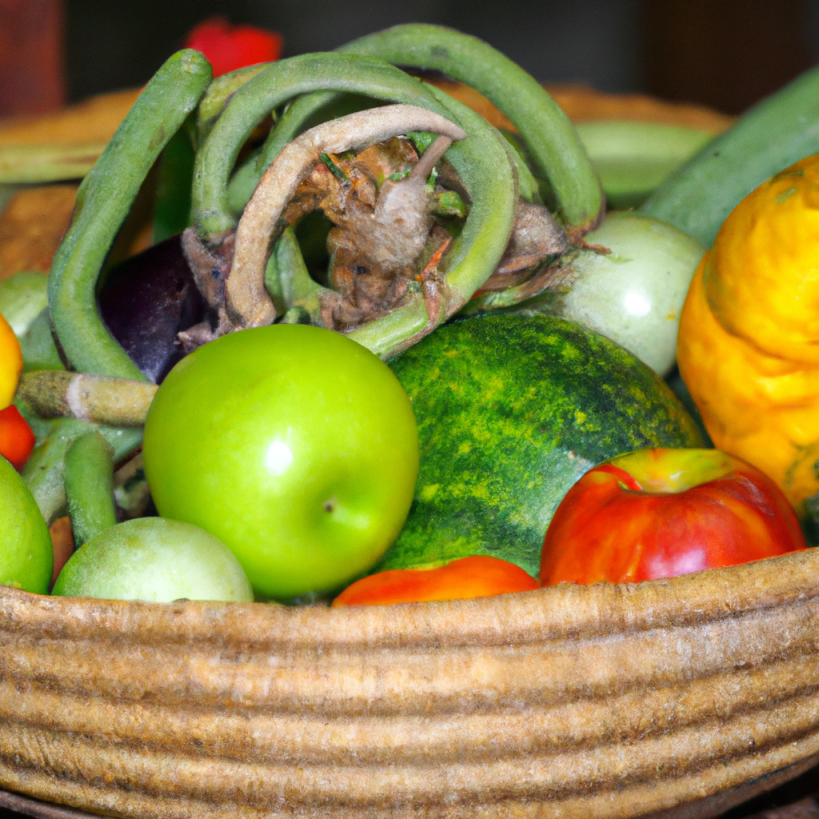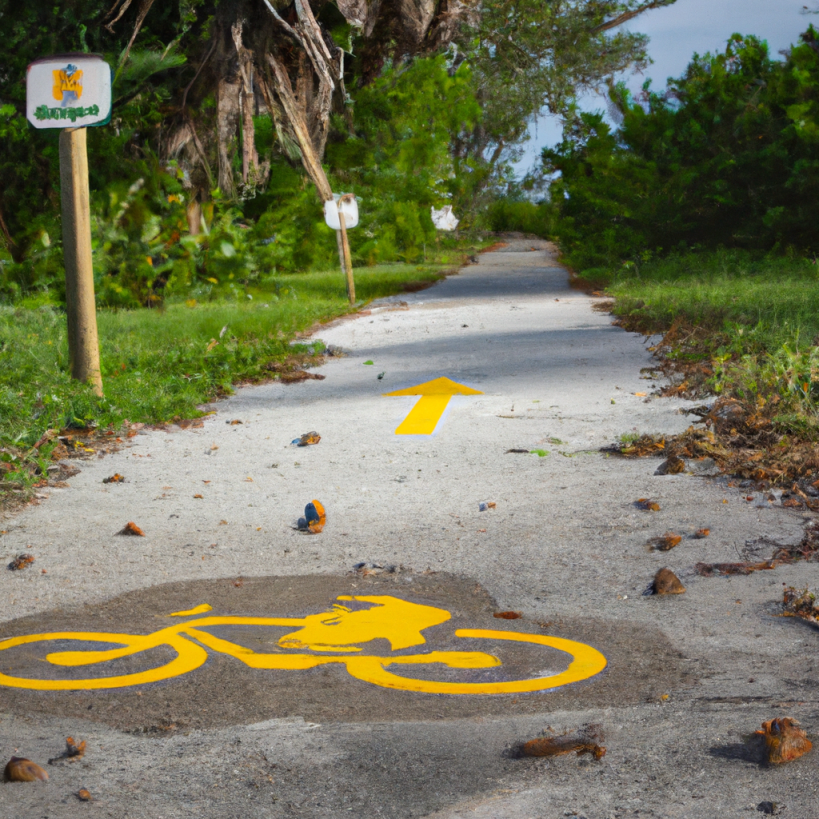Best vegetables to grow in south florida: Green thumbs and aspiring gardeners alike! South Florida is a gardener’s paradise, thanks to its warm, sunny climate. But not all veggies love the sun and heat as much as we do.
That’s why it’s crucial to pick the right vegetables that can thrive in our unique conditions.
In this article, we’ll dig into:
Types of Veggies: Which vegetables are best suited for South Florida?
Growing Tips: From soil prep to pest control, we’ve got you covered.
Smart Gardening: Think shade, vertical gardens, and even hydroponics.
So, grab your gardening gloves because we’re about to get our hands dirty!
What Do You Mean by Best Vegetables to Grow in South Florida?

When we talk about the best vegetables to grow in South Florida, we’re focusing on veggies that love the sun and can handle heat. This area is known for its warm, humid weather, so not all vegetables will be happy here. Let’s break down what makes a vegetable “the best” for this area.
Definition of “Best Vegetables” in South Florida
The term “best vegetables” in South Florida refers to those plants that can thrive in the region’s specific conditions. These are the veggies that will grow big and tasty without too much fuss. They are also the types that can fight off the pests and diseases that like this hot climate.
Factors for Best-Suited Vegetables
- Climate Tolerance: The vegetable should be able to handle high temperatures and humidity.
- Soil Compatibility: South Florida has a range of soil types, from sandy to loamy. The best vegetables are those that can grow in these kinds of soil or are adaptable with a little help, like adding compost.
- Resistance to Pests and Diseases: Because of the warm climate, bugs and plant diseases are common. The best vegetables for this area are those that naturally resist these problems.
- Growth Speed: Fast-growing vegetables are ideal because they produce food before the worst of the pest season kicks in.
- Yield: The amount of produce you can get from a single plant is also crucial. More bounty for less work is always a win!
- Flavor and Nutrient Content: Last but not least, the best vegetables should be tasty and good for you!
By picking vegetables that meet these factors, you’re off to a good start in your South Florida garden.
How to Grow Vegetables in South Florida

Growing your veggies in South Florida is a rewarding experience, but there are some key steps to follow to make sure your garden thrives.
Importance of Location and Sunlight
- Sunlight is Key: Vegetables need lots of light to grow well. Pick a spot in your garden that gets at least 6 hours of direct sunlight each day.
- Good Drainage: Make sure your chosen spot doesn’t collect water. Puddles can rot your plants’ roots!
Soil Preparation and pH Balance
- Test Your Soil: Before planting, it’s smart to test your soil’s pH level. Most vegetables a slightly acidic soil, with a pH of 6 to 6.8.
- Add Compost: Make your Soil even better by adding some organic matter like compost. It helps your soil hold water and nutrients.
Choosing Quality Seeds and Seedlings
- Buy the Best: It’s worth buying good seeds or strong young plants. Look for varieties that say they are good for hot climates.
- Local is Best: If possible, buy from local growers. They’ll have plants that are used in your area.
Timing for Planting
- Follow the Calendar: South Florida’s growing season is long, but each vegetable has its own best time to plant. Check a local planting guide for details.
Watering Techniques
- Keep it Moist: Water your plants regularly, especially when it’s dry. But be careful not to make the soil soggy!
- Morning Watering: It’s best to water your plants in the morning. It helps them get ready for the hot day ahead and prevents diseases.
Pest Control Methods
- Natural Solutions: You can use safe, natural ways to keep bugs away, like planting marigolds near your veggies.
- Check for Bugs: Look at your plants often to catch any bug problems early.
Maintaining Soil Nutrient Levels
- Regular Feeding: Plants need different nutrients at different times. Use a balanced fertilizer that has all the nutrients your plants need.
- Follow the Instructions: Too much fertilizer can hurt your plants. Always follow the package instructions.
Disease Monitoring and Prevention
- Keep an Eye Out: Watch your plants for signs of diseases like mold or strange spots.
- Act Fast: If you see a problem, find out what it is and treat it quickly. Some diseases spread fast!
What is Known About the Best Vegetables to Grow in South Florida?
South Florida’s sunny and warm climate is perfect for growing a variety of vegetables. However, not all veggies are created equal when it comes to thriving in this region.
Tomatoes: Varieties and Tips
- Best Types: ‘Homestead,’ ‘Solar Fire,’ and ‘Florida 91’ are some tomato types that do well in the heat.
- Quick Tips: Plant them in a sunny spot and keep the soil moist. Use cages to help them stand tall!
Peppers: Types and Growing Conditions
- Types to Consider: ‘Cubanelle,’ ‘Sweet Banana,’ and ‘Cayenne’ peppers love the South Florida sun.
- Growing Tips: Peppers like well-drained soil. Make sure they get plenty of sun but also some afternoon shade.
Cucumbers: Best Options for South Florida
- Good Choices: ‘Burpless’ and ‘Armenian’ cucumbers are great for South Florida.
- Care Tips: Use a trellis to keep them off the ground, and watch out for bugs like aphids.
Beans: Bush vs. Pole Beans
- Bush Beans: Varieties like ‘Contender’ and ‘Provider’ are sturdy and don’t need a trellis.
- Pole Beans: ‘Kentucky Wonder’ is a type of pole bean that will need something to climb on.
Squash: Recommendations for Summer Squash
- Summer Picks: ‘Zucchini’ and ‘Yellow Crookneck’ are good choices for warm weather.
- Planting Tips: Give them lots of space to grow, and keep an eye out for squash bugs.
Leafy Greens: Year-Round Options and Tips
- All-Year Veggies: Lettuce, kale, and Swiss chard can grow all year in South Florida.
- Growing Tips: These greens are like a little shade. Try planting them where they’ll get some relief from the afternoon sun.
Solutions for Successful Vegetable Gardening in South Florida
So, you’ve picked your veggies, and you’re ready to grow. But wait, South Florida’s climate can bring its own set of challenges. Don’t worry; we’ve got solutions to help your garden thrive!
Providing Shade During Hot Months
- Why It’s Important: The hot sun can make your plants thirsty and stressed.
- How to Do It: Use shade cloth or plant taller crops to give some relief to smaller plants.
Crop Rotation Practices
- Benefits: Changing where you plant things can stop pests and diseases from getting too comfy.
- How to Rotate: Move leafy greens, root veggies, and fruiting veggies to new spots each season.
Benefits of Mulching
- Keeps soil Cool: Mulch acts like a sun hat for the ground.
- Holds Water: It helps the soil keep moisture, so you water less.
Vertical Gardening to Maximize Space
- Why Go Vertical: If you don’t have a lot of room, grow up, not out!
- How to Do It: Use trellises, cages, or netting to help plants like beans and tomatoes climb.
Alternatives for Challenging Conditions
- Hydroponics: No soil? No problem! Grow plants in water with added nutrients.
- Raised Beds: If your ground soil is poor, try a raised bed filled with good soil.
South Florida Gardening
Gardeners enjoy the advantage of a long growing season, thanks to the area’s tropical climate.
The warm weather is a blessing for many plants, but it also poses some challenges that gardeners should be aware of.
One of the key challenges is the high humidity, which can make plants susceptible to fungal diseases.
Tropical Vegetables
Tropical vegetables are those that thrive in warm, humid climates, much like South Florida’s.
Examples of Tropical Vegetables
- Okra:
- Growing Tips: Okra loves the sun and heat. Plant it in full sunlight and well-drained soil. It is relatively drought-resistant but performs best when watered regularly.
- Eggplant:
- Growing Tips: Eggplant requires a lot of sunlight and does well in rich, well-drained soil. Use a stake to support the plant as it grows and bears fruit.
- Sweet Potatoes:
- Growing Tips: These do well in poor soil and require little attention. They are drought-resistant but yield better with consistent watering.
- Taro:
- Growing Tips: Taro likes wet conditions and is perfect for areas of your garden that may not drain well.
- Malabar Spinach:
- Growing Tips: This is a vine and loves to climb. It prefers full sun but can tolerate partial shade.
Benefits
Tropical vegetables come with a natural resistance to many pests and diseases commonly found in tropical climates. For example:
- Okra: Resistant to aphids and can tolerate dry conditions.
- Eggplant: Less susceptible to diseases like blight, especially when proper crop rotation is practiced.
- Sweet Potatoes: Resistant to most root pests and can thrive in less-than-ideal soil conditions.
Organic Gardening in South Florida
In a tropical setting like South Florida, organic gardening offers extra benefits. It helps maintain the local ecosystem and makes your garden more resilient to the challenges posed by a tropical climate.
Soil Health
One of the best ways to maintain soil health organically is through composting.
Tips for Maintaining Soil Health:
- Use compost to enrich soil.
- Rotate crops to prevent soil depletion.
- Employ cover crops like clover to fix nitrogen in the soil.
- Test soil regularly to keep an eye on its pH and nutrient levels.
Natural Pest Control
One of the main challenges of gardening in South Florida is dealing with pests that love the warm climate as much as your plants do. Organic gardening offers natural methods to control these pests.
Natural Pest Control Tips:
- Neem Oil: This natural insecticide disrupts the life cycle of pests without harming beneficial insects like bees.
- Garlic Spray: A homemade garlic spray can deter a variety of insects and is easy to prepare.
- Beneficial Insects: Introducing predators like ladybugs can help control aphids and other harmful insects.
- Crop Rotation: This practice not only helps soil health but also disrupts the life cycle of soil-borne pests and diseases.
Vegetable Garden Planning
The perfect spot for your garden to choose the right veggies; planning helps you get ahead and stay ahead.
Choosing the Location
The first step in planning your garden is to find the right spot. Here are some things to keep in mind:
- Needs at Least 6 Hours of Direct Sunlight: Vegetables need plenty of sunshine to grow well. Make sure the spot you pick gets at least 6 hours of direct sunlight each day.
- Good Soil Drainage: Tropical storms are common in South Florida, and your garden’s soil must be able to drain well to prevent root rot.
Soil Preparation
Before planting, you’ll need to get your soil in tip-top shape.
Steps to Prepare the Soil:
- pH Testing: Test the soil to find out its pH. Most vegetables prefer slightly acidic to neutral soil, with a pH of 6 to 6.8.
- Organic Matter Addition: Improve your soil by adding organic matter like compost.
Plant Selection
Choosing the good plants is important for a thriving garden.
Tips for Choosing Veggies:
- Climate Adaptability: Some vegetables are better suited to South Florida’s warm, humid climate. Research and select those that are known to thrive here.
- Personal Preference: Always consider your taste when selecting veggies. There’s no point in growing something that no one in your family will eat!
Planting Calendar
Keeping track of when to plant what can be a big help.
Month-by-Month Guide:
- January – March: Ideal for planting tomatoes, cucumbers, and peppers.
- April – June: Time for okra, eggplants, and summer squash.
- July – September: Focus on tropical vegetables and some leafy greens.
- October – December: Plant cool-season crops like lettuce and kale as the weather starts to cool down a bit.
We’ve covered a lot of ground, haven’t we? From picking the best veggies for South Florida to smart gardening solutions, you’re now armed with the know-how to start your garden.
Summary of Key Points
- Best Veggies: Tomatoes, peppers, and leafy greens love South Florida.
- Growing Tips: From soil prep to pest control, we’ve got you covered.
- Smart Solutions: Shade, crop rotation, and vertical gardening can make your garden a star!
A Shoutout to Aspiring Gardeners
Hey, if you’re new to gardening, don’t be shy. You’ve got this! The sun is shining, and the soil is waiting. Go ahead, dig in, and plant something awesome!
Additional Resources
Books for More Info
- “South Florida Gardening Guide” – A complete guide for our unique climate.
- “Vegetables Love Sunshine” – Tips for growing veggies in sunny places.
Websites and Apps
- SouthFloridaVeggies.com – A treasure of tips and plant guides.
- GardenPlanner App – Helps you sketch your garden and set planting reminders.
Community Vibes
- South Florida Garden Club – Join to swap plants and tips.
- Local Farmers’ Markets – A great place to get ideas and meet local growers.
Happy gardening, South Florida! With a little dirt, sweat, and sunshine, you’re on your way to a bountiful harvest. 🌱🌶🍅
FAQs
What veggies are easiest for beginners in South Florida?
If you’re new to gardening, start with tomatoes, bell peppers, and cucumbers. They are generally easy to grow and give you a tasty reward.
How often should I water my garden in South Florida?
The frequency of watering can depend on various factors like the soil type, rainfall, and temperature. Generally, aim to water deeply once or twice a week. Always check the soil; it should be moist but not soggy.
What are some natural ways to keep pests away?
You can use natural pest repellents like neem oil or introduce beneficial insects like ladybugs into your garden. Some herbs like basil and mint also deter pests.
Can I grow vegetables in the shade?
While most vegetables prefer full sun, some leafy greens like lettuce and kale can tolerate partial shade.
What types of soil are best for vegetable gardening in South Florida?
Drained soil rich in organic matter works best. You can improve your soil’s fertility by adding compost.
Can I grow vegetables in pots or containers?
Many vegetables like herbs, peppers, and even tomatoes can be grown successfully in pots. Just make sure they have good drainage.
What is crop rotation, and is it important?
Crop rotation means planting different types of crops in the same area over sequential seasons. It helps prevent soil depletion and controls pests and diseases.
Do I need to use fertilizer?
While not always necessary, a balanced organic fertilizer can help provide essential nutrients that your soil might be lacking.
What are some good resources for vegetable gardening in South Florida?
There are numerous books, websites, and even local gardening clubs that offer valuable information. Some popular websites include the University of Florida IFAS Extension site, and various gardening blogs focused on South Florida conditions.
Can I grow year-round?
One of the perks of living in South Florida is the long growing season. With the right planning, you can enjoy fresh veggies almost all year round.

A renowned expert on tea parties, holds a deep understanding of the South Florida tea party scene and has extensive knowledge about tea parties across the globe.
With a rich background spanning several years, they have immersed themselves in the traditions, nuances, and cultural aspects of tea gatherings worldwide.
writings reflect a blend of firsthand experience and scholarly research, offering readers an authentic and comprehensive perspective on the world of tea parties.














Add Comment